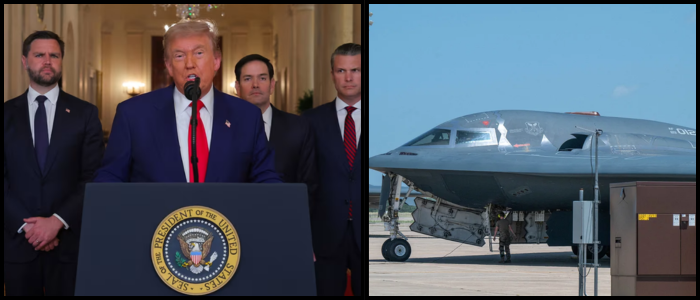In a post on Truth Social, Trump wrote, "CONGRATULATIONS WORLD! ITS TIME FOR PEACE!" and declared with certainty that the two nations "will never be shooting at each other again." The clash in the Sinai Peninsula and a deadly drone strike in Aden, the southern port city where the Houthi rebels' bomb hit on Sunday, was itself an indication of how ephemeral this peace may turn out to be in a country that has suffered more than four years of war.
Ceasefire or Just a Pause?
Trump's confidence could be premature. Temporary cease-fires in the Middle East are common and skepticism is high. While Trump boasted a significant foreign policy victory, analysts caution that there are lingering, deeper problems — not least the fate of Iran's nuclear program.
Even after U.S. strikes, Iran reportedly kept a large store of enriched uranium, some of which was sophisticated enough to raise fears it could be used to build nuclear weapons quickly if it opted to do so.
While Trump said American bombers had badly damaged Iran's nuclear capacity, international monitors have not confirmed that. A former intelligence official said that Tehran probably relocated enriched uranium to safe locations before the attacks. That has raised fears that military action at best delayed, but did not derail Iran's nuclear aspirations.
Trump's response to the crisis mirrors his strengths and weaknesses. He did so decisively and in a show of force rather than sustained diplomacy, and he did so without consulting congressional leaders and against the assessments of the intelligence community at the time that Iran had not yet decided to build a bomb.
Power Shifts With Political Fallout
The ceasefire further signals a shift in the regional balance of power. Iran's missile strike on a U.S. base was swiftly repelled, and the Iranian regime looks debilitated on both military and diplomatic fronts. Israeli supremacy in the air over Iran, the weakened capabilities of Iran-backed proxy networks like Hezbollah and Hamas, and greater power on the part of the Gulf allies, including Saudi Arabia and Qatar, point to a reshaped Middle East.
On the domestic front, Trump would stand to gain politically, particularly among Republicans. To his supporters, the short duration and low cost to the United States of the conflict are proof of his "America First" formula. Yet his critics maintain that the military strike was a reckless step that came dangerously close to triggering a broader war without the approval of Congress.
Trump's henchman circle — from Joint Chiefs Chairman Gen. Dan Caine and CIA Director John Ratcliffe, to envoy Steve Witkoff — thrived during the crisis. But it's unclear what lies ahead for other officials, such as DNI Tulsi Gabbard or Defense Secretary Pete Hegseth.
In the meantime, this episode may politically benefit the Israeli prime minister, Benjamin Netanyahu, who saw his calls for an escalation (and even criticized the episode) as a way to avoid questions over past attacks and his own personal scandals.
With the dust still settling, the world is watching closely. You could say President Trump has ended a 12-day war, but whether that amounts to a beginning of real peace or simply a hiatus in a decades-old, bitter and cosmic hostility is anyone's guess.
Trump Hails 'Forever' Peace in Iran-Israel Conflict

In a series of breathless military and diplomatic manoeuvres where he alternately seemed eager for the thrilling new task but then reticent and unpopular with "progressive voters", Mubarak and both the Israelis and Palestinians, Donald Trump has scored a massive win: he helped broker a white-hot peace deal between Israel and Iran and now he's promising something he's calling a "forever" peace in the Middle East. The news comes after the U.S. bombed Iranian nuclear facilities and Iran launched a limited missile retaliation toward a U.S. base in Qatar, in the latest flashpoint of the Iran Israel conflict. Trump applauded the response as a sign that Tehran was prepared to 'end escalation' and argued that for Washington, that was a 'very good thing!'















